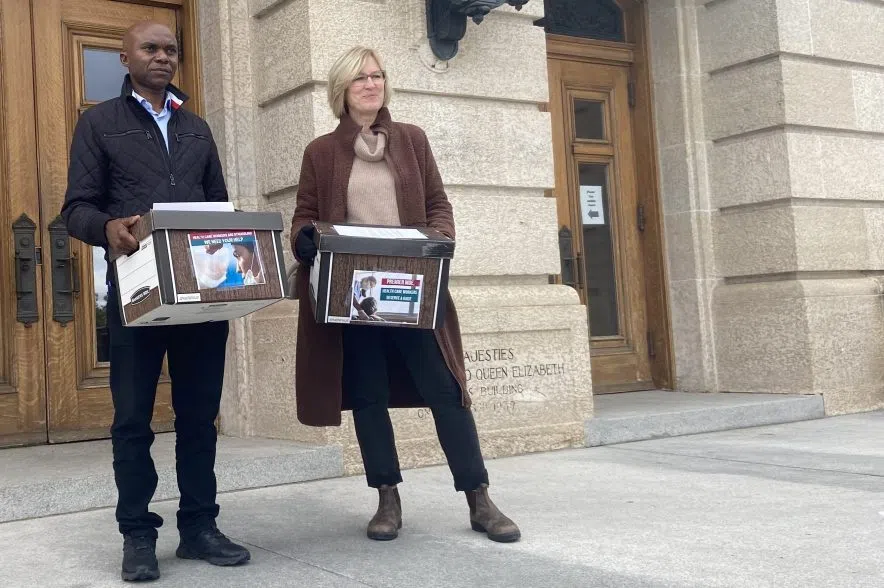While politicians are knocking on your doorstep, health-care workers are knocking at the Saskatchewan Legislative Building.
Canadian Union of Public Employees (CUPE) health-care workers delivered 1,800 postcards to the government on Wednesday morning.
The postcards were signed by health-care workers and members of the public. They outline struggles that health-care workers face daily — more specifically the cost of living and low wages.
Bashir Jalloh, president of CUPE 5430, said workers are struggling.
“People are really frustrated and they are tired,” he said.
“We are seeing a huge, significant number of people retiring or taking early retirement. Some are leaving the profession because of the challenges.”
This morning health care workers, represented by CUPE, delivered 1,800 postcards signed by health care workers and members of the public to Scott Moe at the legislature. @CJMENews pic.twitter.com/ZBkHzGvDWC
— Nicole Garn (@garnnic) October 2, 2024
He said the frustration goes beyond employees, the public is upset too and health-care workers deal with the brunt of it.
“There’s violence towards our members,” he said. “For example, because of the delay, because of the shortages and the staff, people get frustrated, and that has been felt by our members.”
Over the summer, CUPE executive board members visited all the health care facilities in the communities of its members. Those members signed a petition about the challenges health-care workers are facing like recruitment, retention and how behind wages are.
He said this is especially a problem in rural communities.
“You need to pay people, if you don’t pay them, they’re going to leave,” he said. “We want (the government) to look at the challenges in our rural communities. Why are people leaving our rural communities?”
Jalloh said there is a lot going on in the health care system and he wants to see real change.
“We want a real effort to be done with regards to retention of our members,” he said. “Rather than just being the reactive measures that we have been seeing over the past years.”
Jalloh said that filling in the gap with health-care workers from abroad is not sustainable.
“We have given them (the government) the plan for short term, medium term and long term but what can we do to have recruitment and retain people in our system,” he said. “We want a real commitment to do that, so that’s why we brought those petitions here today, to give it to the government.”
He wants the government to actually read the postcards.
“We want them to see how health-care workers are and our struggles,” Jalloh said. “We wanted to have a clear commitment in terms of retention of health-care workers.”
He hopes the postcards send a clear message to the government.







